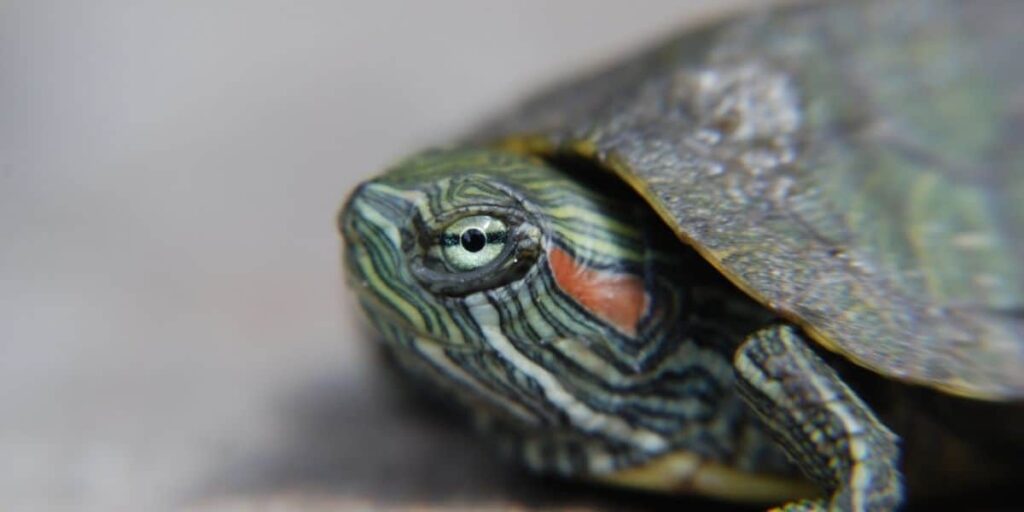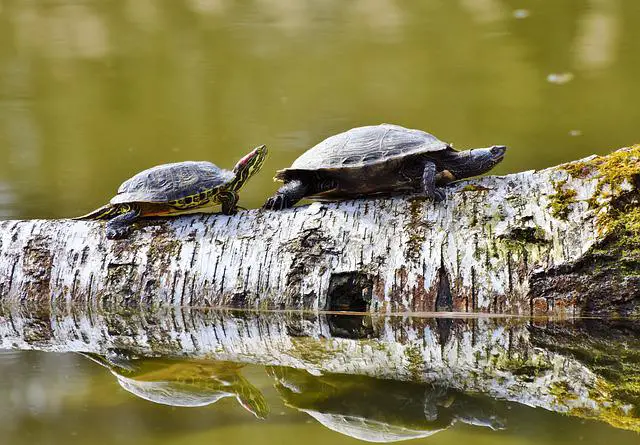Turtles are one of the planet’s longest-living creatures; on average, a turtle can live between 10 – 80 years. Unfortunately, that’s a long time to live, and many pet turtles will often outlive a family’s generation and be passed down to the next one.
For a pet that can live for so long and potentially outlive its owners, you might wonder whether or not a turtle can get attached to (or even recognize) its owners.
Turtles can get attached to their owners as they view them as food, shelter, and protection providers. However, this form of attachment should not be confused with affection, as a turtle’s attachment to an owner will be less personal than that of a cat or dog.
The reptile brain is still not fully understood yet, and it can often be tough to tell what a turtle thinks based on its actions. However, a few signs indicate that a turtle can and will strike up an attachment with its owner; if signs suggest that a turtle can and will strike up an extension with its owner, and if you read on, we’ll dive into the potential connection.

Do Turtles Get Attached to Their Owners
A turtle will get attached to an owner in a very unique and individual way. This means that each turtle will have its personality (just like a human will), and therefore the level of attachment will vary.
There has, however, become a more uniform understanding of a turtle’s attachment to an owner based on a few common factors that numerous owners have come to realize. You’ll find that a turtle will primarily become attached to an owner once it recognizes them as a primary food source.
We have more detail on whether turtles will recognize their owners later in this article. Still, a turtle will display signs of an attachment to an owner due to this positive association with food.
Providing a positive association is just one of a few factors that can help a turtle get attached to an owner, and below are a few of the other more common factors that you could expect to see once your turtle feels safe in your company:
- A turtle will swim or walk up to the glass of its tank to greet its owner. This habit is what many believe to be recognizing their owner and therefore going to them for either food or exercise outside of their enclosure.
- They will roam around the room freely in an owner’s presence and even come up to them for occasionalHowever, around the action. Around humans or other animals, they don’t recognize; you’ll find that they will often hide instead as they are unsure whether there is a potential threat.
- They will let an owner handle and pet them. This is a vital sign of affection as they will only allow this interaction if they feel comfortable; however, it’s safe. It’s important to note that not all turtles like to be held or petted, regardless of their attachment to an owner.
Aturtle’ss attachment to an owner will be more apparent as it accepts you as a part of its environment, and as such, it will behave normally around the owner.

Can Turtles Recognize Their Owners
Whether or not a turtle recognizes its owner is a sensitive topic closely related to whether a turtle can be attached to an owner. It’s hard to argue that a turtle can be attached to an owner if itdoesn’tt recognize them in the first place!
The reason it’s a sensitive topic is that pet owners will, of course, have affection towards their pets, and this naturally leads the owner to believe that they share a bond with their turtle and that, in turn, the turtle will recognize them as their owner.
This Reddit thread shows just how varied my opinion is over whether or not a turtle can recognize an owner.
We may not completely understand a turtle’s ability to recognize an owner. Still, in general, a turtle will tend to identify an owner as someone who provides them with food, shelter, warmth, exercise, and safety, so this positive association is often displayed through scent and visual interaction. It’s hard to say whether a turtle can recognize their owner by sight alone or whether or not they respond to their name, for example, but what we can see from interactions is that they will typically recognize their owner as someone who will give them food, let them out to exercise or even on occasion pet them.
In Summary
While we still are not at a stage whereby we can say that turtles can become attached to their owner from an affectionate viewpoint (which is what this question is indirectly asking), there are some factors to indicate that a turtle will form an attachment to its owner(s). You’ll see positive signs of this when they come towards you for food, exercise, or to be playful and even petted, which you may find theydon’tt tend to do with strangers and can ultimately demonstrate an attachment in the turtle’s unique way.
- Do Black Caiman Live in Groups? Exploring the Social Behavior of These Large Reptiles
- Do Black Caiman Have Predators? Exploring the Threats to This Amazonian Reptile
- Do Black Caiman Eat Toucans? Exploring the Diet of Black Caimans in the Wild
- Do Black Caiman Eat Sloths? The Truth About the Diet of Black Caiman
- Can a Black Caiman Kill a Human? Exploring the Predator’s Potentially Deadly Bite




